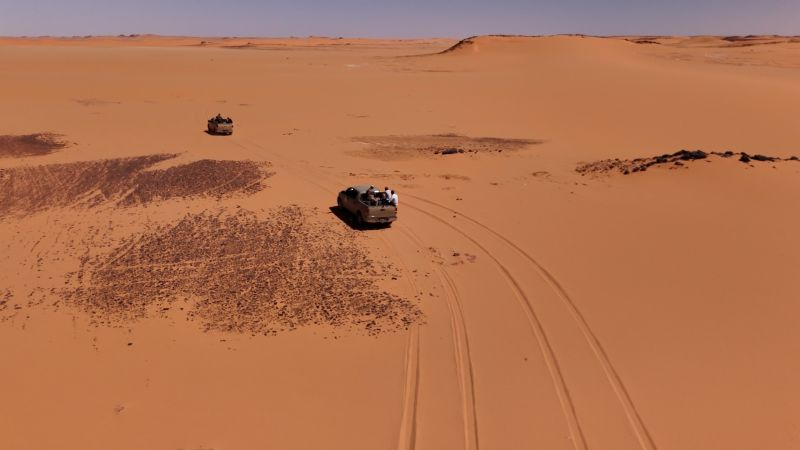Refugees in Libya face horrific conditions as traffickers extort ransom payments from their families, with reports of torture and abuse surfacing regularly. In a recent investigation, CNN’s Isobel Yeung revealed the plight of migrants like Daniel, whose family in Germany struggles to raise the demanded ransom of $10,000 for his release. Daniel’s situation is not isolated; it highlights a grim reality for countless migrants trapped in Libya’s vast Sahara Desert.
The conflict in Sudan has driven many to seek refuge in Libya, a country that has become a central transit point for those attempting to cross the Mediterranean Sea to Europe. As conflicts in the region shift, the demographics of migrants change, with many fleeing violence and oppression. Migrants from Eritrea, often referred to as Africa’s North Korea, represent a significant portion of those facing exploitation in this dangerous journey.
Exploitation in the Desert
The terrifying experiences of individuals like Daniel reveal the extent of the trafficking operations in southern Libya. Families receive distressing calls or videos showcasing the torment endured by their loved ones. In Daniel’s case, his sister Abeba received audio messages detailing his suffering at the hands of captors who remain hidden from view. Each communication serves as a reminder of the dire situation, as Daniel is reportedly tied up, beaten, and subjected to humiliating treatment.
Colonel Mohammad Hassan Rahil of the Libyan National Army acknowledges the challenges faced in combating trafficking in the expansive desert landscape. “We are doing our best with the capabilities that we have,” he stated, emphasizing the limitations of law enforcement in tracking and apprehending traffickers who know the terrain intimately.
The system of exploitation operates through a complex network, often facilitated by individuals who help transfer ransom payments through informal channels like “hawala.” This method complicates efforts to track the flow of money, allowing traffickers to operate with relative safety. During one interrogation, a Sudanese man admitted to acting as a middleman, transferring money while remaining unaware of the full extent of the trafficking operations.
The Human Cost
The ramifications of this trafficking extend beyond financial burdens. Many migrants, once freed, find themselves detained under harsh conditions, awaiting assistance from organizations like the United Nations. In Benghazi’s Ganfuda Detention Center, young women like a 16-year-old Eritrean girl, referred to as Abrihet, recount experiences of abuse and trauma. “They touched me,” she shared, highlighting the psychological scars that linger long after the physical ones heal.
Colonel Mohammed Al-Fadhil, from Libya’s Department for Combating Illegal Migration, insists that the situation has improved, yet acknowledges the need for international cooperation to address the crisis. He emphasized that all countries must share the responsibility to combat the trafficking phenomenon.
Despite agreements made between the European Union and Libya to curb illegal migration, the number of migrants attempting the perilous journey has surged. Reports indicate that Eritreans now comprise the second-largest group arriving in Italy, following Bangladeshis. The continuing conflict in Sudan exacerbates the situation, as many individuals are forced to flee.
In the wake of her brother’s release, Abeba expressed profound despair over the ordeal. After months of fundraising, she managed to secure Daniel’s freedom, but the emotional toll remains significant. “May God punish them for what they did,” she implored. Her plea underscores the human suffering at the heart of this ongoing issue, as families around the world grapple with the anguish of loved ones caught in the web of trafficking.
The plight of refugees in Libya serves as a stark reminder of the urgent need for a comprehensive response to human trafficking and the protection of vulnerable populations. As international organizations continue to call for support, the struggle for justice and safety persists in the shadows of the Sahara.
